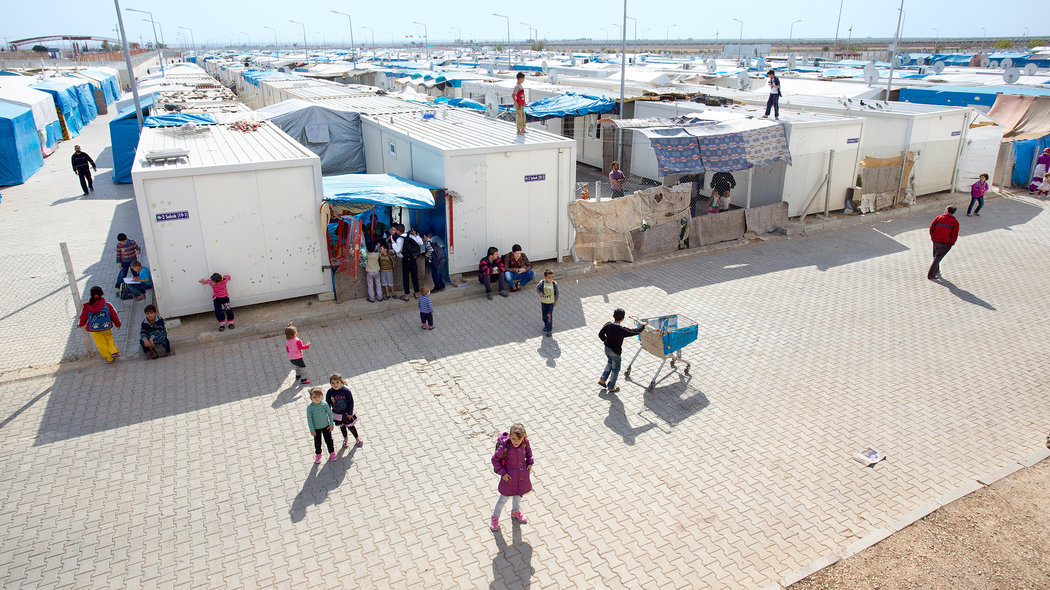How to Build a Perfect Refugee Camp
From the outside, the temporary shelter for Syrian civilians in Kilis, Turkey, doesn’t look like an inviting place to live. It looks like a prison. All around are olive groves, but here, Turkey suddenly runs out. A metal archway announces the customs gate to Syria. To its right stands what is more formally known as the Republic of Turkey Prime Ministry Disaster and Emergency Management Presidency’s Kilis Oncupinar Accommodation Facility. High gates bar entry, and barbed wire tops the walls. Police officers and private security mill about.
Many of the world’s displaced live in conditions striking for their wretchedness, but what is startling about Kilis is how little it resembles the refugee camp of our imagination. It is orderly, incongruously so. Residents scan a card with their fingerprints for entry, before they pass through metal detectors and run whatever items they’re carrying through an X-ray machine. Inside, it’s stark: 2,053 identical containers spread out in neat rows. No tents. None of the smells — rotting garbage, raw sewage — usually associated with human crush and lack of infrastructure.
